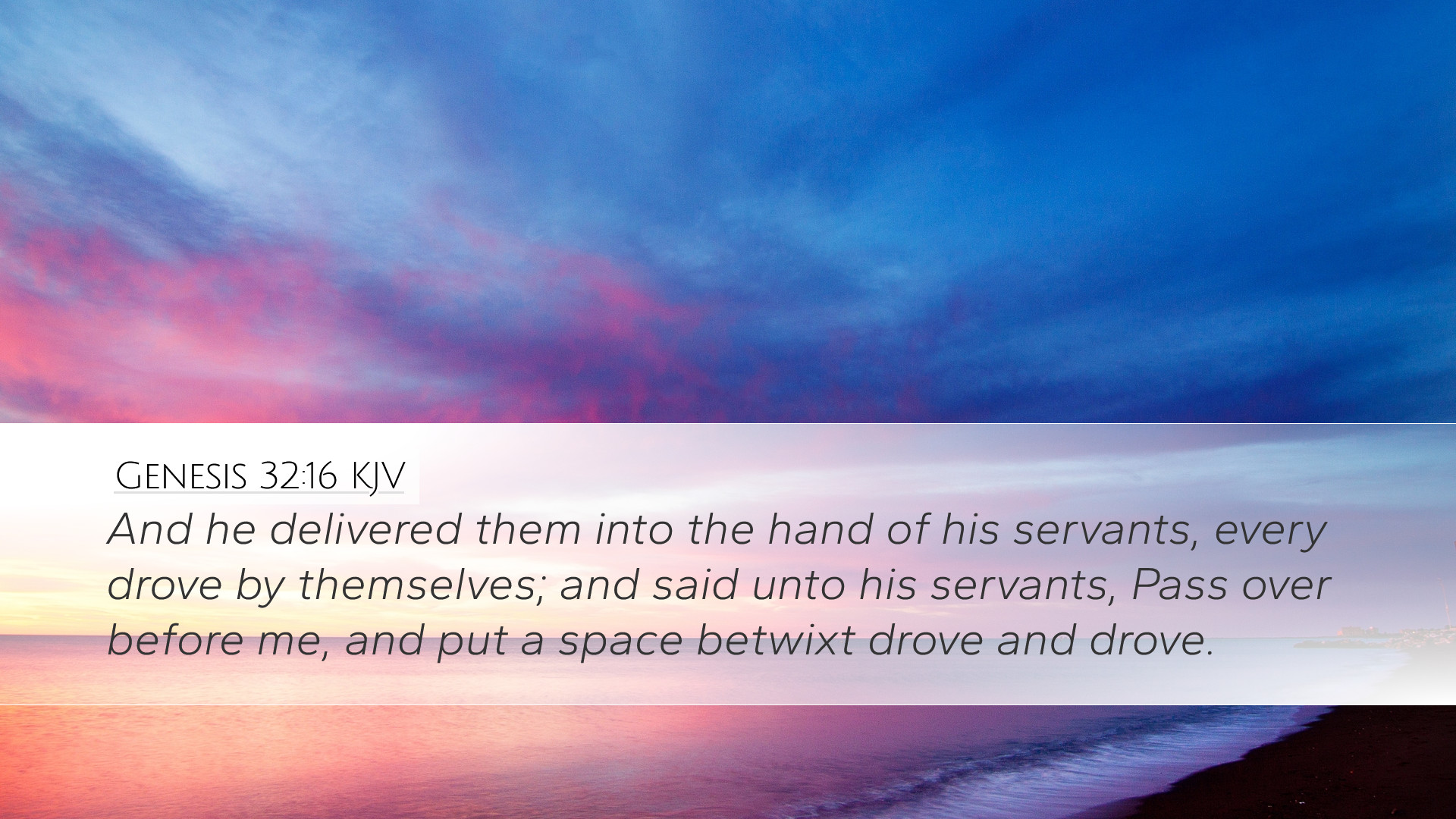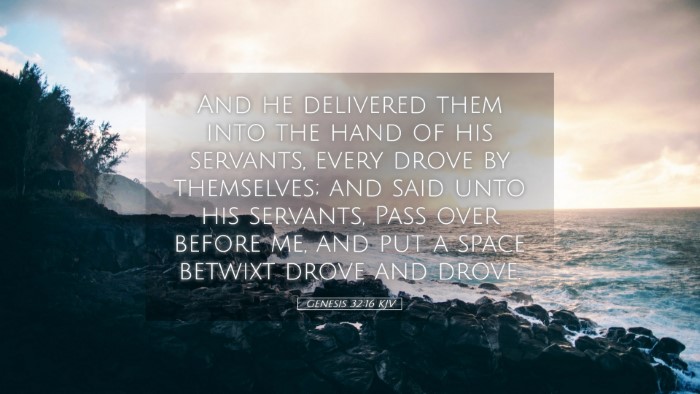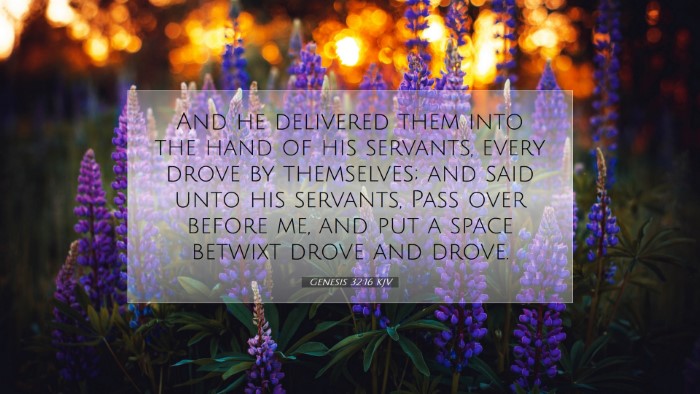Commentary on Genesis 32:16
Text of Genesis 32:16 (KJV): "And he delivered them into the hand of his servants, every drove by themselves; and said unto his servants, Pass over before me, and put a space betwixt drove and drove."
Introduction
This verse is pivotal in understanding Jacob's preparations to meet his brother Esau after many years of estrangement. Jacob, having experienced a transformative encounter with God at Peniel, is now encumbered with the fear of Esau's wrath. The complexity of the situation calls for prudence and strategic planning. This commentary compiles insights from renowned public domain theologians to provide a comprehensive understanding of this verse.
Contextual Background
Before analyzing the verse, it is crucial to establish the context:
- Jacob's Background: Jacob had deceived Esau and stolen his blessing, resulting in a deep rift between the brothers.
- Period of Separation: Jacob spent many years in Haran, away from his homeland, and was now returning to Canaan.
- Fear of Esau: Jacob feared that Esau might seek revenge, thus he devised a method to appease him.
Exegetical Analysis
This section draws insights from various commentaries:
Matthew Henry’s Commentary
Matthew Henry emphasizes Jacob's wisdom in his approach to Esau. He notes that Jacob, aware of Esau's potential hostility, organizes his servants and livestock in distinct groups or “droves.” This tactic served multiple purposes:
- Psychological Strategy: By spacing out the droves, Henry argues, Jacob hoped to soften Esau's heart gradually, allowing him to see the extent of Jacob's wealth and humility.
- Symbol of Reconciliation: Each drove could be interpreted as a gesture of peace, aimed at demonstrating Jacob's desire to amend their fractured relationship.
Albert Barnes’ Notes on the Bible
Barnes points out the significance of the “space” placed between each drove. He elaborates that:
- Sequential Approach: This spacing represents a measured approach to confrontation, allowing Esau to process each gift before being overwhelmed by the whole.
- Divine Providence: Barnes further interprets this strategy as divinely inspired, showcasing Jacob’s reliance on God for reconciliation.
Adam Clarke’s Commentary
Adam Clarke offers a deeper psychological insight into Jacob’s actions. He suggests that:
- Fear and Faith: Jacob's delivery of the droves indicates a blend of fear and faith. While he is anxious about Esau’s reaction, he also demonstrates faith by trusting that his offerings will sway Esau.
- Preparation for All Outcomes: Clarke emphasizes that while Jacob prepares for the worst (a possible attack), he simultaneously positions himself for a favorable outcome.
Theological Implications
The theological insights derived from Jacob’s preparation for this fateful meeting are profound.
- Human Responsibility and Divine Sovereignty: The verse encapsulates the balance between human initiative and reliance on God’s providence. Jacob’s actions reflect a responsible effort to seek reconciliation while still trusting in God’s will.
- The Nature of True Reconciliation: Jacob’s approach teaches that true reconciliation often requires humility, thoughtful gestures, and a willingness to bear the cost of past wrongs.
Practical Application
This verse resonates with contemporary believers in several ways:
- Conflict Resolution: It offers a model for addressing conflicts. Thoughtful planning and humility can create pathways to resolution and reconciliation.
- Spiritual Preparedness: Jacob exemplifies the importance of spiritual preparation and reliance on God, especially before significant encounters or decisions.
- Generosity in Relationships: Through his offerings, Jacob teaches that generosity can heal wounds and foster goodwill.
Conclusion
Genesis 32:16 reveals not only Jacob's astute strategies in the face of fear but also the deeper themes of reconciliation, divine providence, and human responsibility. As pastors, students, theologians, and Bible scholars reflect on this passage, may they glean insights that inspire them toward grace-filled interactions and faith-driven preparations in their own lives.


